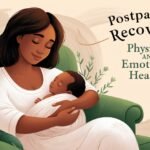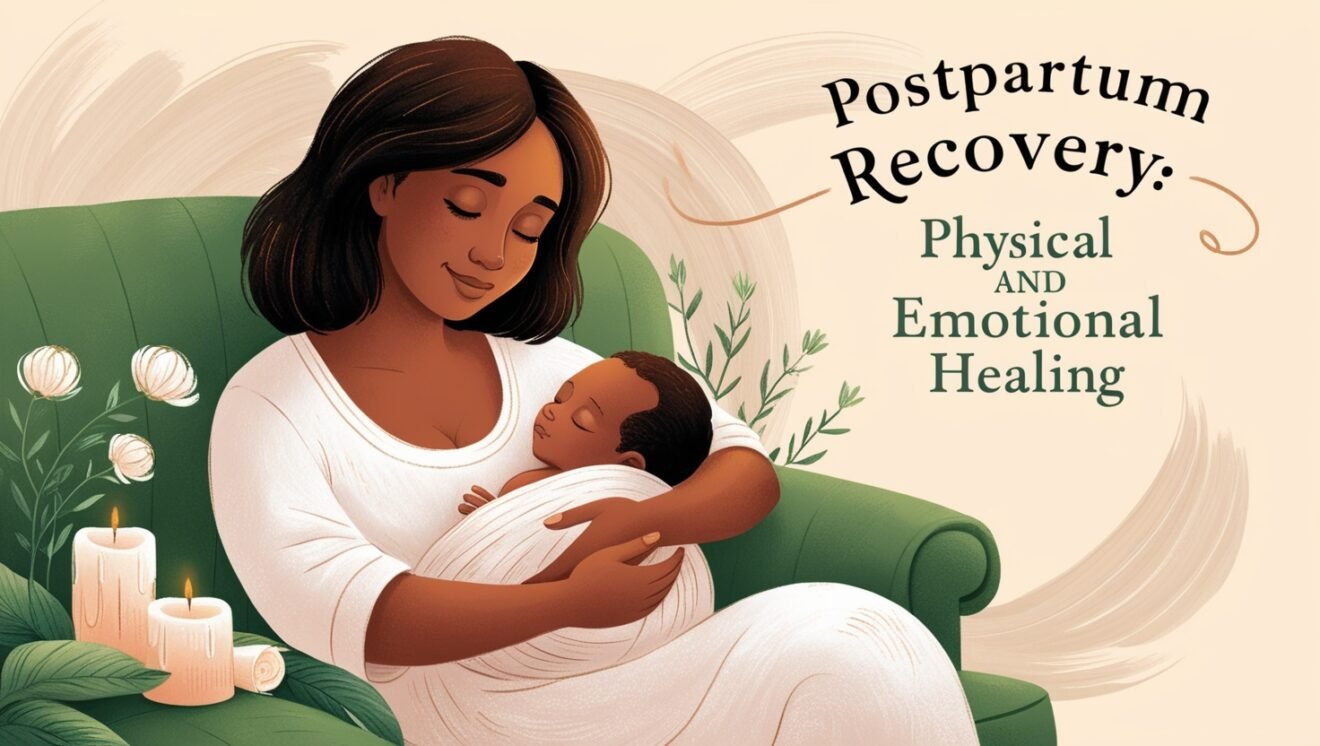Postpartum Recovery: A Comprehensive Guide to Physical and Emotional Healing
Welcoming a new baby into the world is an extraordinary experience, but it also significantly changes a mother’s body and emotions. Postpartum recovery is a crucial phase where new mothers need to focus on healing and adjusting to their new role. In this guide, we will explore essential advice on physical and emotional recovery after childbirth, discuss postpartum depression, and provide information on where to get help.
Physical Recovery After Childbirth
Childbirth, whether vaginal or via cesarean section, is a demanding process that leaves the body needing time to heal. Here are some tips for physical recovery:
Rest and Recuperate
Rest is paramount during the postpartum period. Your body has gone through a tremendous ordeal, and adequate sleep and relaxation are essential for healing. Nap when your baby naps, and don’t hesitate to ask for help with household chores.
Manage Postpartum Pain
It’s common to experience pain and discomfort after childbirth. Over-the-counter pain relief, warm baths, and gentle exercise can help alleviate some of these symptoms. Always follow your healthcare provider’s recommendations regarding pain management.
Pelvic Floor Exercises
Strengthening your pelvic floor muscles can help with bladder control and support overall recovery. Kegel exercises are particularly beneficial. They involve repeatedly contracting and relaxing the muscles used to stop the flow of urine.
Nutrition and Hydration
Eating a balanced diet rich in vitamins and minerals will aid your body’s recovery. Focus on consuming plenty of fruits, vegetables, lean proteins, and whole grains. Staying hydrated by drinking plenty of water is equally important.
Gentle Physical Activity
While rest is crucial, incorporating gentle physical activity like walking can promote circulation and aid recovery. Always listen to your body and avoid strenuous activities until your healthcare provider gives the green light.
Emotional Recovery After Childbirth
The emotional aspect of postpartum recovery is just as important as the physical. The transition to motherhood can be overwhelming, and it’s essential to take care of your mental health.
Acknowledge Your Feelings
It’s normal to experience a wide range of emotions after childbirth, from joy and excitement to anxiety and sadness. Allow yourself to feel and express these emotions without judgment.
Build a Support System
Surround yourself with supportive friends and family members. Joining a new mom’s group can also provide a sense of community and shared understanding. Don’t hesitate to lean on your partner, friends, or family for support.
Practice Self-Care
Taking time for yourself is vital. Whether it’s a relaxing bath, a quiet walk, or simply reading a book, self-care activities can rejuvenate your spirit and improve your emotional well-being.
Communicate with Your Partner
Open communication with your partner about your feelings and needs can strengthen your relationship and ensure you’re both on the same page. Sharing responsibilities and supporting each other is crucial during this period.
Understanding Postpartum Depression
While many women experience “baby blues” after childbirth, characterized by mood swings, crying spells, and anxiety, these feelings typically subside within a couple of weeks. However, if these symptoms persist or intensify, it could indicate postpartum depression (PPD).
Symptoms of Postpartum Depression
PPD symptoms can vary but often include:
- Persistent sadness or hopelessness
- Loss of interest in activities you once enjoyed
- Severe mood swings
- Difficulty bonding with your baby
- Withdrawal from family and friends
- Changes in appetite or sleep patterns
- Feelings of worthlessness or guilt
- Thoughts of harming yourself or your baby
Seeking Help for Postpartum Depression
If you suspect you might be experiencing postpartum depression, it’s essential to seek help. PPD is a medical condition that requires professional intervention. Here are some steps to take:
Talk to Your Healthcare Provider
Your doctor can assess your symptoms and recommend appropriate treatment, which may include therapy, medication, or both.
Join a Support Group
Connecting with other mothers who are going through similar experiences can provide comfort and understanding. Many communities offer support groups for postpartum depression.
Reach Out to Mental Health Professionals
Therapists specializing in postpartum mental health can offer valuable support and coping strategies. Don’t hesitate to contact a mental health professional for help.
National and Local Resources
Many organizations offer resources and hotlines for postpartum depression. The Postpartum Support International (PSI) website is an excellent starting point for finding help in your area.
Conclusion
Postpartum recovery is a multifaceted process involving both physical and emotional healing. By prioritizing rest, nutrition, gentle exercise, and emotional well-being, new mothers can navigate this challenging period more smoothly. Understanding postpartum depression and knowing where to seek help is crucial for those who may need additional support. Remember, asking for help and taking the time you need to recover is okay. Your well-being is essential for both you and your baby.
By focusing on these aspects, new mothers can embark on their recovery journey with confidence and care, ensuring a healthy start for themselves and their newborns.











Add Comment